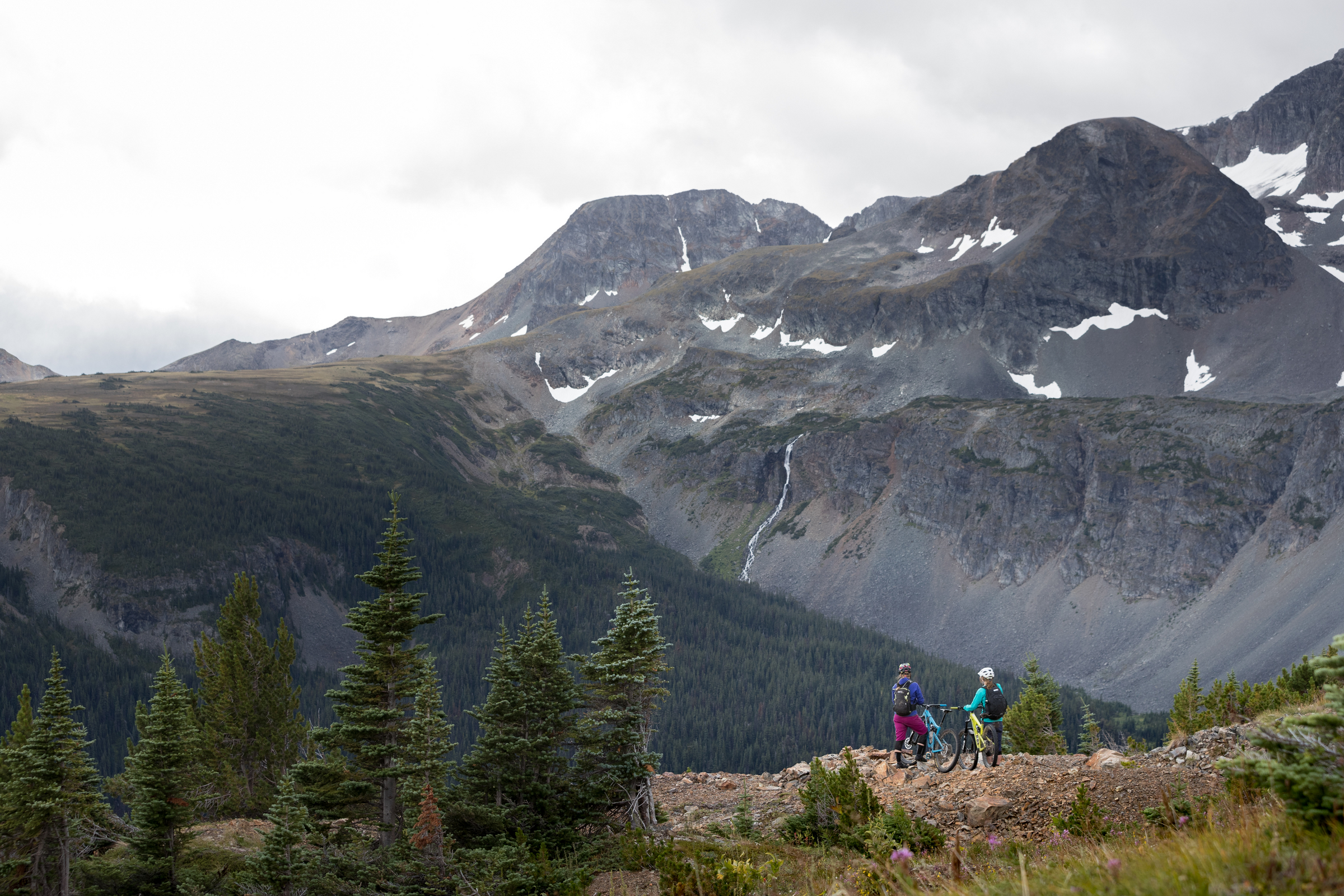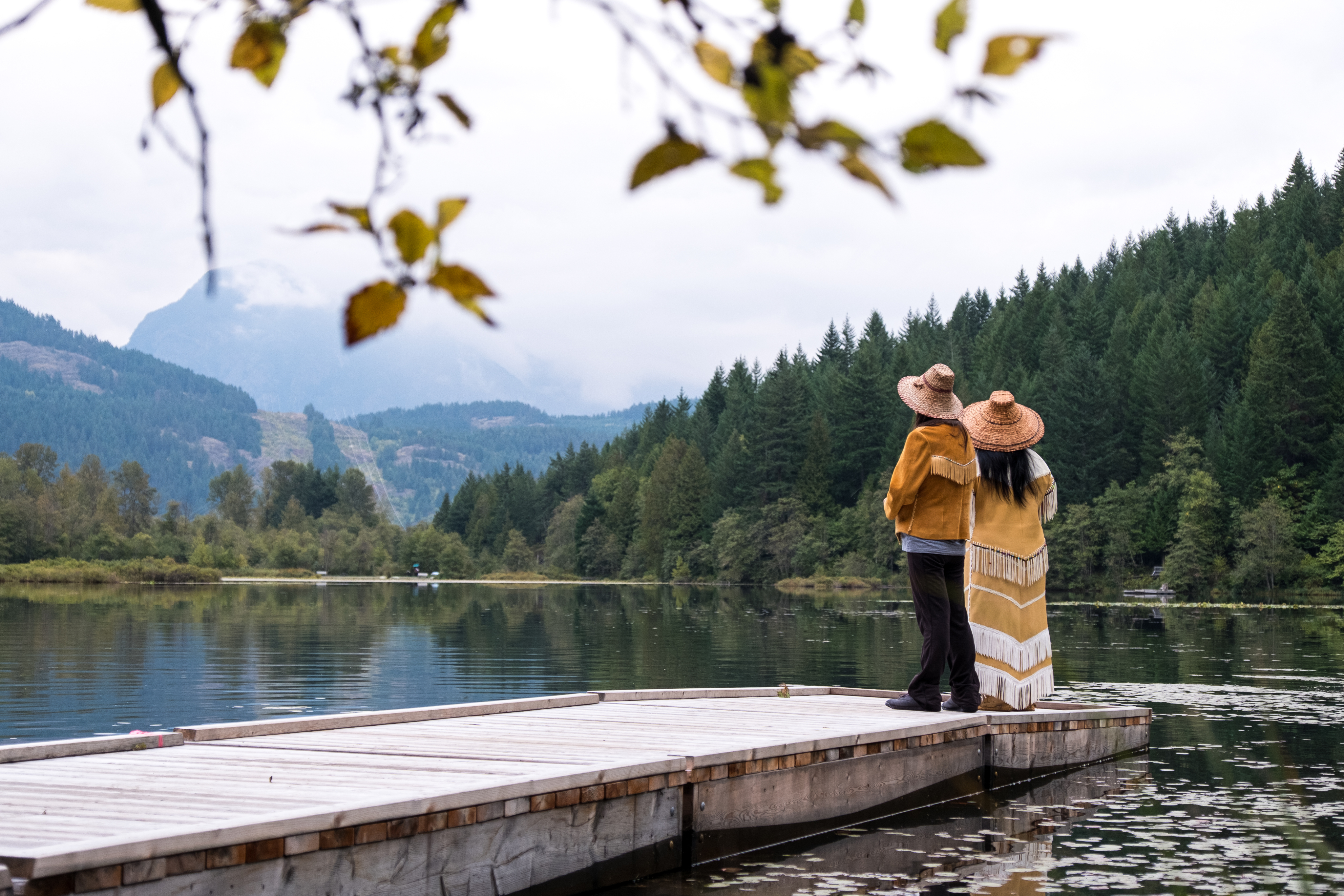Sarah’s Haida Arts and Jewellery


Visiting Haida Gwaii means experiencing rugged beaches, ancient rainforest, and powerful weather that has shaped both land and culture. To the untrained eye, these places may look untouched — but for millennia, the Haida Nation has lived here. The land holds heritage sites that are evidence of this longstanding relationship.

These are the Islands of the People: Xaayda means “people,” and Gwaay.yaay means “islands.” Spending time here connects you directly to living Haida culture, where people and place are inseparable — teachings expressed in Yahguudang (respect for all living things) and Gina ‘waadluxan gud ad kwaagid (everything depends on everything else).

Getting to Haida Gwaii is part of the journey.
Whether you fly in or arrive by ferry, the trip offers sweeping coastal views and a chance to leave the rush behind. Travel here naturally moves at a slower pace, giving you time to notice the landscape and connect with each community along the way.

By Air – Flights from Vancouver to Sandspit (Moresby Island) and Masset (Graham Island). Seasonal routes are also available with Pacific Coastal Airlines. Seaplane service is available from Prince Rupert.
By Ferry – BC Ferries travels from Prince Rupert to Skidegate. Connect by road to Prince Rupert or take the ferry from Port Hardy at the north end of Vancouver Island.

On Island – Exploring by e-bike, or kayak lets you slow down and see the islands in a new way. Use Eagle Transit Services or book local tours for community connections.
If you’d like to explore more of the surrounding area, it’s best to arrange a rental car before you arrive, as on-island options are limited.

Eagle Transit is a Haida owned and operated bus charter service in HlGaagilda (Skidegate), Haida Gwaii. Haida traffic is kept to a minimum and this charter allows for customizable itineraries and group travel. The largest bus in the fleet can accommodate up to 32 passengers.
 Haida Gwaii Museum
Haida Gwaii Museum  Baby Seal at Rose Spit | Destination BC/Grant Harder
Baby Seal at Rose Spit | Destination BC/Grant Harder 
Most trips to Haida Gwaii begin in one of two places: Masset, reached by flight into the northern airport, or Skidegate, serviced by both the BC Ferry from Prince Rupert and the Alliford Bay ferry from Sandspit Airport. From either starting point, travellers follow the main road along Graham Island, connecting Masset, Tlell, Skidegate, and Daajing Giids as you head south.
Northern Graham Island
At the northern edge of Graham Island, the neighbouring communities of Masset and Old Massett (Gaaw) welcome travellers to the north coast.
Masset is the northern airport hub and a gateway to Naikoon Provincial Park, Tow Hill, and the sands of North Beach, while Old Massett is a vibrant Haida community known for its carving, art, and cultural expression.
In Old Massett, visitors will find carving sheds, studios, and galleries where renowned Haida artists continue traditions that have been passed down for generations. This is a place where Haida culture is lived daily, and travellers step into a community that has cared for and stewarded these lands since time immemorial.

The dining room features tide-to-table seasonal menus, highlighting Haida culture with locally caught wild salmon, halibut, and Dungeness crab, paired with fresh, local ingredients. Ocean House is perfect for intimate ceremonies and family reunions, or crafting bespoke celebrations for every occasion,
Approximate distance from Masset to Tlell: 65 km
On the eastern coast of Graham Island, the quiet riverside community of Tlell is surrounded by sandy beaches, farmland, and forest. The Tlell River winds its way through mossy rainforest before reaching the sea, and nearby East Beach in Naikoon Provincial Park stretches endlessly along the Pacific.

At the heart of Tlell is Haida House at Tllaal, a 100% Haida-owned lodge and cultural destination. Once a recreational hunting lodge, Haida leadership re-imagined the property as a place rooted in culture, hospitality, and ecological responsibility. Today, guests can stay in ten comfortable lodge rooms or twelve modern two-bedroom oceanside cabins spread across fifty acres of river and ocean frontage, forest, gardens, and orchards.

Haida House also offers an acclaimed dining experience. The restaurant features tide- and farm-to-table cuisine, with ingredients harvested from the sea, forest, and the gardens and greenhouses on the property. Guests can enjoy relaxed meals with views of the river or from the patio.
More than a place to stay, Haida House is also a base for cultural and eco-adventures. Haida guides lead visitors on explorations of heritage sites and local ecosystems, connecting every experience back to Haida values and stewardship.
 Haida House Cabins
Haida House Cabins  Haida House Kitchen Garden
Haida House Kitchen Garden Approximate distance from Tlell to Skidegate: 50 km / From Skidegate to Daajing Giids: 5 km
On the eastern coast of Graham Island, the quiet riverside community of Tlell is surrounded by sandy beaches, farmland, and forest. The Tlell River winds its way through mossy rainforest before reaching the sea, and nearby East Beach in Naikoon Provincial Park stretches endlessly along the Pacific.
On the southern edge of Graham Island, Skidegate (HlG̱aagilda) and nearby Daajing Giids — formerly known as Queen Charlotte — are the cultural and community heart of Haida Gwaii.
This is where most visitors first arrive. BC Ferries docks at Skidegate from Prince Rupert, as well and the short ferry from Alliford Bay near Sandspit Airport connects Moresby Island to Graham Island here.
Just outside Skidegate, visitors can also see Balance Rock, a glacial boulder perched on the shoreline and a striking natural landmark.

Jewel of the Islands
From Skidegate and nearby Daajing Giids, many travellers continue south toward Gwaii Haanas, where ancient Haida village sites and extraordinary biodiversity are well-cared for. Accessible only by water or air, visitors must visit Gwaii Haanas responsibly with the guidance of a licensed operator.
Haida Style Expeditions is the first and only 100% Haida-owned marine adventure company operating in Gwaii Haanas. Their team leads guests through fjords, inlets, hot springs, and remote cultural sites, weaving in Haida stories and perspectives at every stop. Guided by Haida values, these journeys offer an intimate way to experience the southern islands, where Haida heritage and homelands are inseparable.
Flora and Fauna
Haida Gwaii is a biodiverse wonder and home to rare and protected plant and animal species. There are six species of mammals here that cannot be found anywhere else in the world, including Taan, a Haida Gwaii black bear that is considered the largest black bear in North America.
Offshore, more than twenty species of whales and dolphins migrate through these waters, from orcas to humpbacks. Seabirds nest on rocky islets, eagles soar above salmon rivers, and ancient cedar forests tower over moss-covered ground. Here, every part of the ecosystem is connected, a living reflection of Haida stewardship.

Nature Abounds
 Humpback Whale
Humpback Whale  Pacific White Sided Dolphins
Pacific White Sided Dolphins 
Resepectful Travel
Visitors are asked to prepare thoughtfully and travel with respect. Haida Gwaii is remote, services are limited, and the weather can be unpredictable. Planning ahead helps keep your journey safe and supports the community.
At the heart of this guidance is the Haida Gwaii Pledge, a commitment to travel lightly and honour Haida stewardship of these lands and waters:
Gina ‘waadluxan gud ad kwaagid – Everything depends on everything else.

Haida Gwaii
When you walk Haida Gwaii’s trails, paddle its waters, or pause among the trees, you step into a living balance.
Visiting Haida Gwaii is more than sightseeing — it is an invitation to connect with Haida culture and the lands and waters that have sustained the Haida Nation since time immemorial.
Guided by respect, responsibility, and interconnectedness, every journey here is part of something larger. The lessons of Haida Gwaii stay with you long after your visit, carrying forward the values of travelling lightly and honouring both people and place.
 Haida House at Tllaal | Northern BC Tourism/Shayd Johnson
Haida House at Tllaal | Northern BC Tourism/Shayd Johnson  Haida Heritage Centre
Haida Heritage Centre